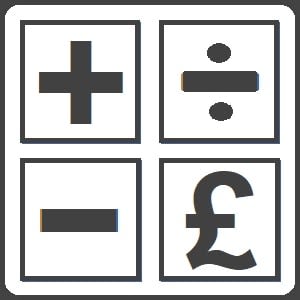Your First Self Assessment in the UK: A Practical Guide for New Taxpayers

If you're filing a UK Self Assessment tax return for the first time, it’s important to understand one key difference in the UK tax system: you must take the initiative. Unlike in some places like Hong Kong, where the tax authority registers you automatically once you meet the income threshold, HMRC doesn’t work that way. In the UK, unless you register, nothing happens. You won’t receive a tax code, reminder letter, or any notice — but you're still legally responsible to file and pay tax if it’s due.
That’s why it’s called Self Assessment: you assess, register, and report your tax affairs to HMRC.
Why It Matters — Especially for First-Time Filers
Many first-time taxpayers assume that no message from HMRC means they’re in the clear. But failing to register or report doesn’t cancel your tax responsibilities — it only delays them. HMRC may eventually identify the missing return, and when they do, they could view it as a deliberate failure to comply. This might lead to penalties, interest, or even an enquiry into your tax history.
The good news? If you take action early — even if you’ve missed a deadline — HMRC usually responds better to voluntary disclosure than to silence. It’s far easier to resolve things now than after they’ve come looking for you.
What First-Time Taxpayers Need To Do
If you haven’t filed a UK tax return before, the first step is to register with HMRC and request your Unique Taxpayer Reference (UTR). You’re expected to do this by 5 October following the end of the tax year in question. For example, if you need to file for the 2024/25 tax year, the registration deadline is 5 October 2025. It can take up to two weeks — or longer if you live overseas — to receive your UTR, so it’s best not to leave it too late.
Once your UTR arrives, you’ll need to set up a Government Gateway account for online access. HMRC will send you an activation code by post, which adds further delay. Many people wait until January and find out, too late, that there’s not enough time to get everything set up in time to file.
As a first-time filer, you’ll need to report all income received during the tax year — even if it was earned before you registered. If you're newly self-employed, you may still need to notify HMRC separately, even for low earnings. If you have overseas income, rental income, or dividends, additional forms like SA106 or SA109 may be required.
Where First-Timers Often Go Wrong
Even after registering on time, many new filers make avoidable mistakes. It’s easy to use the wrong figures — especially for foreign earnings — or to miss key supplementary pages. Some people assume deductions they’re not entitled to, or worse, don’t claim reliefs they could have. Most common of all: not knowing what you don’t know.
These errors can delay your return, increase your tax bill, or trigger unnecessary enquiries from HMRC. And since HMRC doesn’t provide tailored advice, the burden is on you to get it right.
How We Help First-Time Filers Do It Right
At Elaga Accountancy, we specialise in helping first-time taxpayers get off to a strong start. We can handle your HMRC registration, apply for your UTR, and guide you through the setup of your Government Gateway account. More importantly, we make sure your tax return is complete, accurate, and compliant — whether you’re dealing with self-employment, rental income, overseas earnings, or a combination of everything.
We’ve worked with clients who are new to the UK tax system, and we understand the pressure of trying to figure it all out alone. You don’t need to take risks or spend hours guessing through HMRC’s forms. We take care of it for you — clearly, thoroughly, and on time.
Ready to Get It Right the First Time?
Filing your first Self Assessment is a big step, but it doesn’t have to be overwhelming. Whether you're unsure about the rules, the forms, or just don’t want to make mistakes, we're here to help.
Contact Elaga Accountancy today — we’ll walk you through the process and handle the rest, so you can file with confidence and focus on what matters most.
#UKTax #SelfAssessment #FirstTimeTaxpayer #HMRC #ForeignIncome #SelfEmployedUK #LandlordTax #DigitalNomadUK #TaxHelp #TaxTips #UTRRegistration #UKFinance
Contact Us
Send a Message
Get in touch to discuss with us how we can best assist you.
